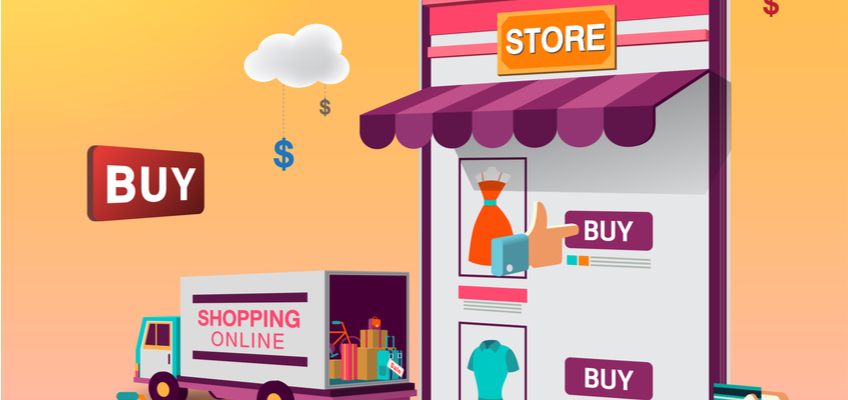
The Power of Working Capital for Amazon’s Prime Day 2021
Amazon’s 2-day Prime Day event drives more sales to Amazon than Black Friday or Cyber Monday. In a nearly 50% increase over 2019, $10.4B in gross merchandise sales on Prime Day 2020 should convince you that this top-5 shopping day is worth the efforts to prepare your store. In addition, the 150M+ Prime members flocking to the biggest Amazon event of the year are proven to spend more than non-Prime members, so this is an opportunity to welcome loyal, high-spending customers to your store.
Investing in advertising and inventory is the key to making the most of that opportunity but managing these elements can be challenging as they both require planning ahead with skillful budgeting and cash flow management. Don’t worry, there are solutions you can use to secure your piece of the $10B Prime Day pie. Ready to get started? Let’s go.


Bring More Customers, Sell More Products
When it comes to bringing more customers to your store, the challenge gets even tougher on Prime Day. Pacvue’s Prime Day 2020 report analyzed the performance of ads from thousands of advertisers, revealing:
- The average spend on Sponsored Brand ads was up 263% year-over-year on the first day of Prime Day, and 238% on the second day.
- The average cost-per-click for those ads was also up 23% over the two-day event.
- The return on ad spend (ROAS) for Sponsored Product ads over Prime Day is up 43% year-over-year, with a higher return on the first day.
These numbers are a clear indication that advertising is getting even more competitive and the rapid acceleration of eCommerce during 2020 will surely have a similar effect on ad prices this June when Prime Day 2021 kicks off.
So, with bids for Amazon’s paid search advertising tripling on average and ad prices fluctuating on an hourly basis to handle the demand, ads can rise by as much as $20 per click throughout the event. At face value, it might seem like a better idea to avoid advertising on Amazon directly but with 51% of shoppers starting their product search on Amazon compared to 16% on Google, it’s definitely worth the investment.
As a result, sellers should think carefully about their ad spend strategy and be prepared with a budget that can help them fund the opportunity for growth in a smart way. However, advertising is only one piece of the Prime Day puzzle. Once you’ve got your strategy in place, you’ll need enough product to avoid running out of stock so you can capitalize on the full 48-hour consumer spending spree.
Let’s talk inventory.


Meet Your Prime Day Inventory Demand
With an advertising strategy in place, you’ll have your customers right where you want them – looking through your listed goods. But what happens when they read your clear and descriptive product details, decide to add your product to their cart, and are suddenly interrupted by a red Out of stock indicator? Yikes.
When you’re putting your valuable budget behind carefully planned advertising for Prime Day, you need to have the inventory to handle the increased traffic to your store. Unlike other peak shopping seasons, which can last several months, Prime Day is a unique two-day selling window that shuts early if your inventory depletes.
Running out of stock is about more than losing valuable sales, though. When a customer is interrupted from adding their desired product to their cart by those three dreaded words, it doesn’t feel good. Even small bad experiences like these can be damaging to your brand loyalty. 91% of customers avoid businesses when something goes wrong, even if that thing is out of the merchant’s hands. Luckily for you, this is an experience that can be avoided with the right inventory preparation and budgeting. Most sellers start planning months in advance and the gap between your investment and when you start receiving your profits will be significant. The saying goes “You have to spend money to make money” and that still rings true across the eCommerce landscape, making a well-managed budget even more crucial.
How Do I Grab the Prime Day Opportunity?
That’s the $10B question and there are a few ways to answer it. You’ll want to start by analyzing what performed well last year, and research some trending products in your space. Then it comes down to your financing strategy.
Credit card financing works but it can be costly in the long-term with high interest rates, while business loans and other financing solutions involve credit checks and lots of paperwork – traditional solutions that aren’t ideal for eCommerce business models. In addition, the turnaround time for receiving profits on your investment can take longer when you consider the wait for your Amazon payout.
So, how can you responsibly finance your strategy to take your Amazon store to the next level?


Make It Happen with Payoneer’s Capital Advance
Payoneer’s Capital Advance is the flexible financing answer to the demands of your Amazon stores, offering instant funds with no credit checks, one attractive, fixed fee with no interest, and a gradual settlement from future payouts.
Remember those loyal, high-spending Prime members from the beginning of this blog? A successful sale on Prime Day can earn these customers’ repeated business, and Capital Advance can provide up to $750,000 in working capital to help you get your store ready to keep them happy:
- Get the budget to compete with your Prime Day paid search campaign bids so you can attract more customers.
- Stock enough product to meet the increased demand of those customers during the intense two-day selling period.
- Manage your budgets more efficiently with a gradual settlement that won’t break the bank so you can handle day-to-day expenses as you prepare for the increased Prime Day demand.
Apply for Capital Advance today to grow your Amazon business and go beyond during Prime Day 2021.




